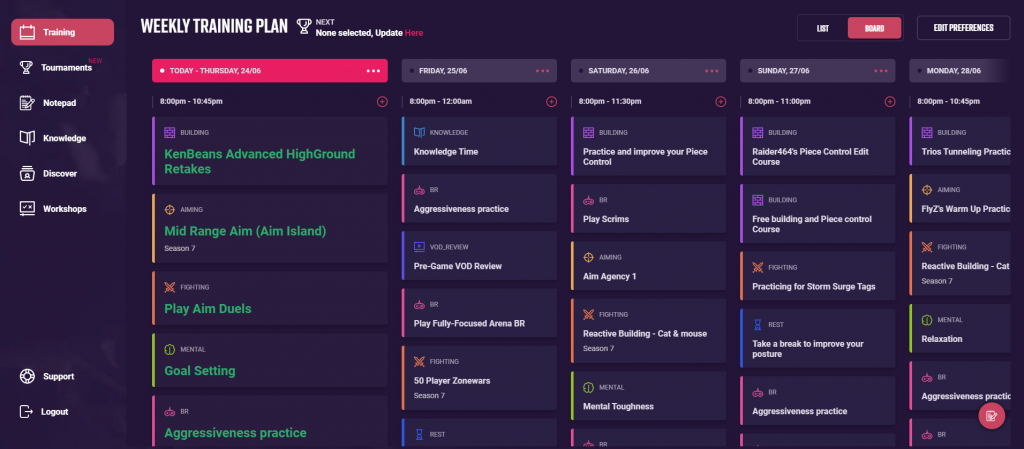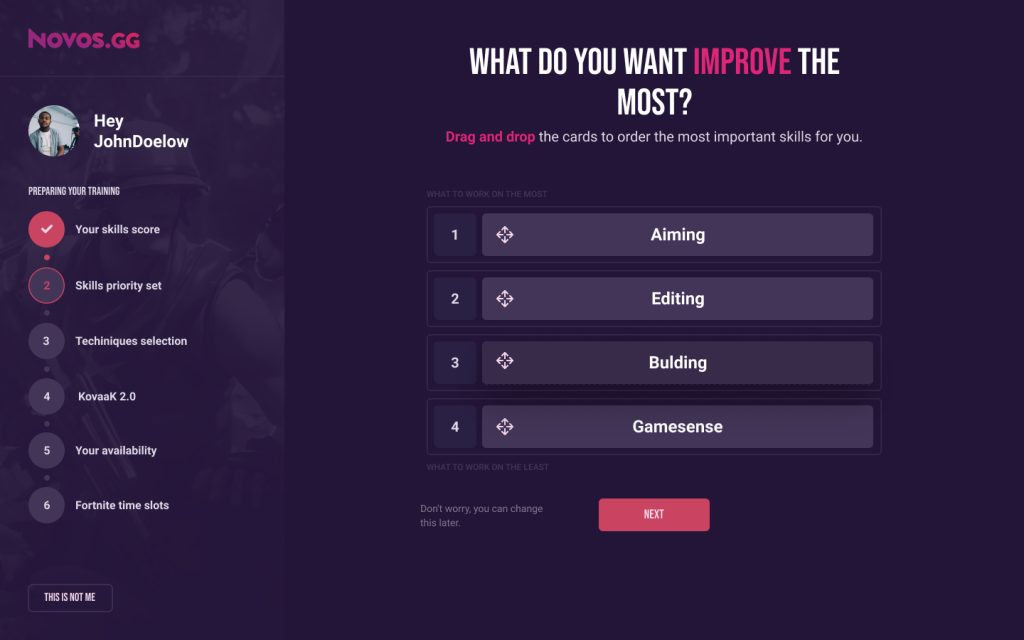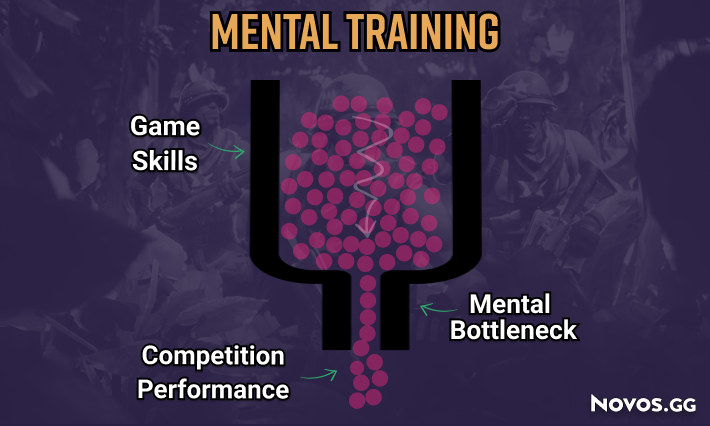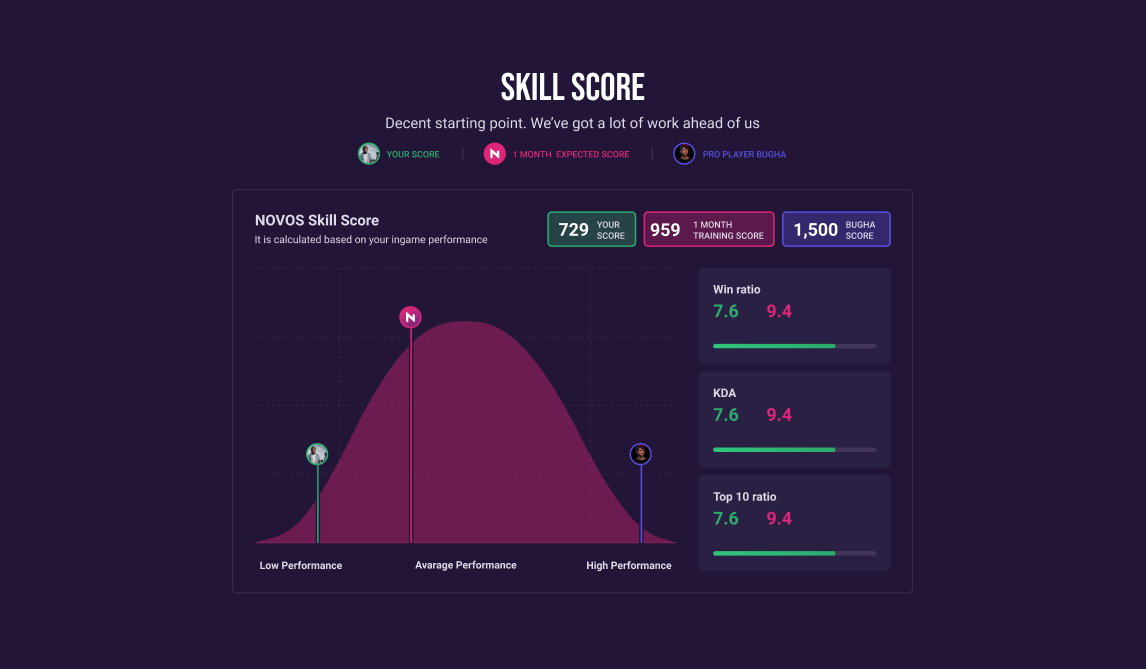Introduction
In late 2020 I was conducting a seminar about mental tools training in Esports for my graduate degree. The class consisted of people from the department of Sports and exercise science. Although it was a great discussion, the focus was not on research and science. It was about defining Esports as a sport. You are probably familiar with the arguments already. “How is playing a video game a sport?” First, it doesn’t test any physical abilities. Second, it exists in a world that has rules that limit what you can do and is too objective. Or simply saying “It’s something kids do.” All valid arguments, but the definition of sport is:
“An activity involving physical exertion and skill in which an individual or a team competes against another or others for entertainment”
I can’t imagine anyone who ever competed in a multiplayer game arguing with this. Now if it is a sport, how do you train as a professional for it? The people in the exercise science department do not have an answer. No books, not much experience (10 years at best, is close to nothing), and definitely no robust academic program on how to coach for it.
How do you classify skills? how long should someone train to avoid fatigue or burnout?
How should training sessions be designed? and many other questions still need answering
Here at NOVOS, we want to be the best possible. We live and breathe being “The best Esports training platform in the world.” In order to stand behind that statement we learn, A LOT, and we research even more.
So we wanted to talk to coaches, to see what they are doing, what they’ve done in the past, and what they plan for the future. The goal was to see what are the commonalities, maybe there is something that all Esports coaches do and we may have been missing. Hopefully putting these methods into concrete models. Developing them in scale and maybe even improving upon them. This post will point out some of the issues we see in the current Esports coaching scene. We cannot stress this enough: it is not a knock about the coaches. If we want to be the biggest competitive field in the world we need to have reflections and aspire to be the best. We will cover some of the main issues we see today in Esports coaching with the hope to drive everyone upwards, together.
Here are the conclusions we made so far:
Coaches categorize their players
What this means is they don’t try to change them or make them adapt to things.
Coaches assess the player’s style, how they prefer to play the game, and adapt their training accordingly.
Now let’s divide this into two main conscious coaching decisions:
1. Losing information
2. Players are individualistic
Losing information
We choose to lose some information when we put something into a category. This is a common phenomenon in human beings. We classify things into categories “If it ticks enough boxes it belongs here”. We start doing this as infants and as time passes we develop more intricate taxonomies. For a baby, every animal that walks on 4 is a dog. As previously mentioned, categorizing ignores the noise and makes the training process more simple. But when it comes to peak performance, the noise is what separates the good from the great. The question that comes to mind is what information we may be losing when we divide into groups? What potential for improvement is overlooked?
Players are individualistic
Competitors begin competing due to their skills. What this means is they view themselves as capable of being competitive gamers. Therefore, what has worked so far should work in the future. The style they play, the things they have done should be good enough because they are already succeeding right? This is a big issue much of the competitive scene suffers from. Because what you did work in the past, that doesn’t mean it’s the best thing you can do. Best case scenario it was something that did help, worst case it did more harm than good. Once players are open to change and development, the sport can evolve. In traditional sports, when an athlete wants to get better, they know better coaching is the answer.
Generally, coaches don’t tend to change the players. They go with them on their personal tendencies. So coaches don’t force change on the players but they classify them based on their style and work around it. Soon when training develops, players won’t be able to rely so heavily on their talent and style. They will be forced to adapt and change. This will allow more experimentation and maturity, thus players could adapt to the coach. In opposite to what happens now when coaches adapt to the player by using categorization.
Insufficient long-term planning
There are three potential reasons for this:
- Quick burnout
- Lack of training
- Sign of the times

Accelerated burnout
If you asked me to make one prediction, I would say this is the most pressing issue in the Esports climate today, and it will feed research in the years to come. The source of the issue is a paradox, for these reasons:
Esports athletes burn out quickly so teams and coaches tend to use them fast and don’t plan long-term investment and training for the athletes. The next big tournament is all that matters, and we should do everything to prepare for it. This means the intensity of training is very high, very frequently. But long term thinking and proper training will slow down burnout. So the issue reinforces itself. In traditional sports, there is almost no field in which an athlete in an individual or small team structure will compete more than once a week. Many fields it is several times a year at most.
In Esports, competitors can have the stress and cognitive load of competing almost every day. Consider the case of a talented player skipping a tournament. Not participating more than once a month, but show up prepared and well-rested to that tournament? It is likely that they will arrive relaxed and ready to succeed. This is, in some ways, a chicken and egg problem “Athletes burnout fast let’s not think long term.” as opposed to “Long term thinking will decrease athletes burnout.”
Lack of training
Generally speaking, coaches are former players, which is natural, especially for a young field. This offers so many difficulties, such as the fact games change. Even more important, there is no proper coaching training, yet. Players who feel they know the game well, and got some positive feedback from others become coaches, which is great! But for a sport to develop, foundations need to be built. How to build this foundation? Well, we try to build it every day. Having methods to build upon is important, even if they are not the best initially. Once we have a standard we can work on improving it.
Sign of the times
We live in the 21st century, where attention span is short, the stimulus is high and we can do anything we want whenever we want. There isn’t much we can do about it; it’s simply the time we live in. People get tired of things fast. When there are so many options, and we are constantly exposed to them, it will shift our focus. Personally, I don’t want to believe this. We all enjoy seeing people who are really good at what they do, it is the core of entertainment, and even more so the sports industry. No one likes to watch people being mediocre, we want to see the best or the ones we care about. Because players tend to not think of things long-term, a structured, balanced 6-month training plan might as well be 10 years.

Skill assessment
When a traditional sports athlete approaches a coach, universally, the coach makes an accurate assessment of the athlete. This varies in level of seriousness, coach experience, amount of detail, and time period. All of these are important. When there is no clear standard for what to assess or how to do it naturally, every coach may have their own opinion. Except for watching the players and spotting certain aspects, there is no clear acceptable standard for player assessment. This point connects to the first one raised about categorization, there are certain aspects dictating the training plan, yet it is not adaptive, developed, or measured.

Mental approach
The coaches we spoke to understand how the mental aspects of competing are crucial to success. Esports is a very mentaly demanding sport. Not only is it very cognitively demanding, it does not require much physical exertion compared to other fields. This requires that the competitor will be extremely resilient to what is happening in competition and within themselves. Coaches know this, it is something they emphasize and show a very professional approach to this aspect. They understand its value and try to communicate it to their athletes. The approach many coaches have is astoundingly positive and professional. They understand many aspects of confidence and energy levels that most traditional sport athletes don’t even think about.
Looking ahead
Long-term training and career planning are still areas where Esports training lacks. The methods of coaching are still being developed, at the time of this writing, there isn’t a strong source of knowledge or research for Esports coaching. The atmosphere is shifting, especially due to the year that was 2020. The work still needs to be done in the field before we shift to theories, and we are all a part of it.
We at NOVOS see ourselves as a part of the revolution. We work on making players better. This is the principle that guides us through and through and we learn and apply what we know. The future of Esports is a promising one, there is no doubt about it. There are definitely steps towards laying the foundations of Esports training methodologies. Yet the grunt work needs doing. We feel fortunate to be a part of this process, and look forward to be part of its future development.

